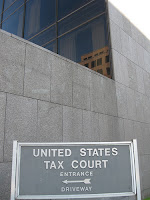According to Law360, a recent U.S. Tax Court decision may open up a new avenue to challenge a tax code provision that prohibits deductions and credits for marijuana businesses, as several court judges said the provision may amount to an unconstitutional excessive penalty.
Earlier this month, the Tax Court in an opinion with multiple partial dissents, upheld a $1.2 million tax deficiency for a California medical marijuana company, rejecting its arguments that Internal Revenue Code Section 280E is a penalty and an unconstitutional excessive fine that violated the Eighth Amendment.
 Section 280E, which forbids a business to take credits or deductions when trafficking in a controlled substances, was enacted under Congress’ “unquestionable authority” pursuant to the 16th Amendment , which grants Congress the power to collect taxes on income, the majority opinion said. Section 280E does not violate the Eighth Amendment , which prohibits excessive fines, because the disallowance of deductions is a matter of “legislative grace,” not a penalty, the opinion said.
Section 280E, which forbids a business to take credits or deductions when trafficking in a controlled substances, was enacted under Congress’ “unquestionable authority” pursuant to the 16th Amendment , which grants Congress the power to collect taxes on income, the majority opinion said. Section 280E does not violate the Eighth Amendment , which prohibits excessive fines, because the disallowance of deductions is a matter of “legislative grace,” not a penalty, the opinion said.
However, in an opinion dissenting in part, Judge David Gustafson said he would have held Section 280E unconstitutional because the 16th Amendment authorizes Congress to tax “income,” which is a gain or profit, but the disallowance of all deductions under Section 280E results in a tax on something that is different from someone's “income” within the meaning of the 16th Amendment.
Since then, 10 states have legalized marijuana, Illinois is slated to legalize cannabis beginning Jan. 1, 2020, and 33 other states and Washington, D.C., have permitted the use of medical marijuana. As marijuana use becomes more mainstream, Section 280E is effectively penalizing businesses trying to legally operate at the state level, according to Rachel K. Gillette, who is chair of the cannabis law group at Greenspoon Marder LLP.
Read more at: Tax Times blog








